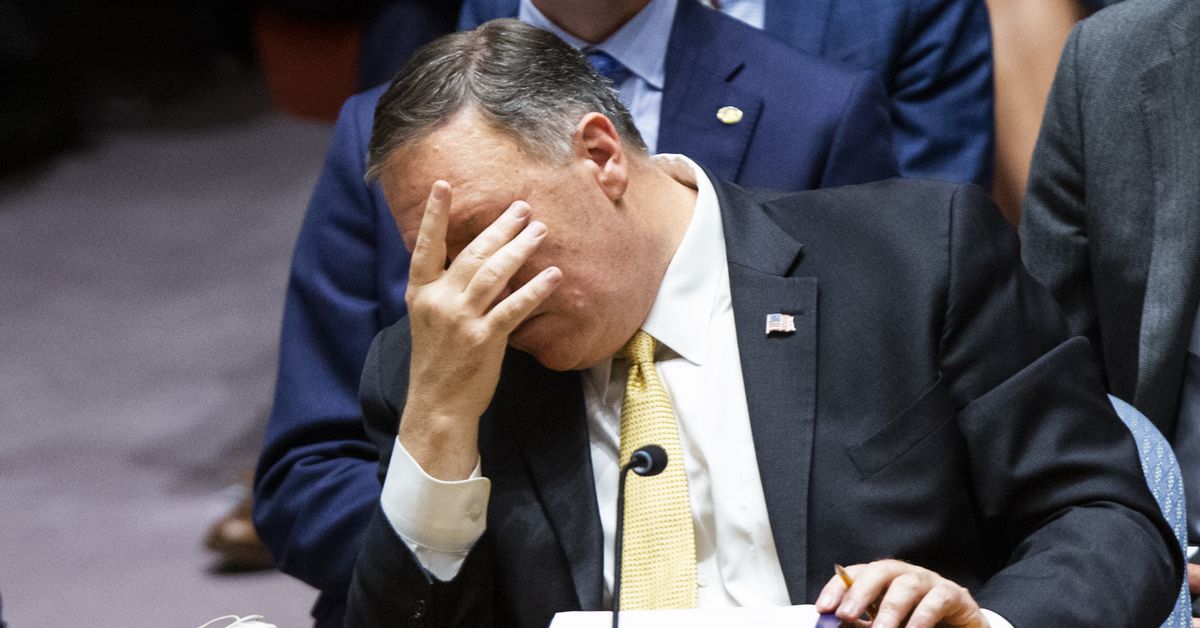First, according to the Charter of the United Nations, contrary to the practice of the General Assembly, in which decisions are taken on the basis of a numerical majority, i.e. the number of positive and negative votes, the Security Council approves any decision, from amending regulations to imposing sanctions or using force by 9 affirmative votes and no veto by any of the veto-wielding countries. In the latter case, the United States and the Dominican Republic were the only countries to vote in favour of the US proposal; China and Russia voted against, with the rest of the world (Germany, Britain, France, Belgium, Estonia, Indonesia, Niger, St. Vincent and the Grenadines, South Africa, Tunisia, and Vietnam) abstaining. Abstentions in the council are as harmful as negative votes, as they reduce the chances of getting 9 positive votes. That is, the historical isolation of the United States so that even its allies did not support it.
Second, on the day of the humiliating defeat of the United States, Secretary of State Mike Pompeo, willingly or unwillingly, revealed the White House’s plan to pursue its political agenda against Iran in the wake of the legal games, due to the revelation of the weakness of Washington’s legal arguments. Washington has announced that it will use the trigger mechanism, i.e. the return of all former Security Council sanctions against Iran, but while according to official documents and statements of US officials, it is not a member of the Joint Comprehensive Plan of Action (JCPOA), how does it now claim that according to Resolution 2231 it is a member of the JCPOA and has the right to use the trigger mechanism?
Although the US legal argument has not yet been made public, it may be arguing that the Security Council has designated the United States as a “member of JCPOA” in a paragraph of the resolution independent of the JCPOA, it may intend to advance the game that because the resolution is under Chapter 7 of the Charter considers the United States a party to the deal, regardless of US domestic policy and stance on the JCPOA, unless it makes another decision, but if the US argument is so simplistic, then it has fundamental flaws.
Pompeo’s next remarks at the State Department on August 20 in front of reporters give a better picture of the US way of legal reasoning. He said UNSC Resolution gave every one of the participant states the right to execute snap back unconditionally. “There are other nations that are not in compliance with the JCPOA today as well. They would have the right to conduct snapback as well. It’s written, it’s plain. It’s very straightforward. I know the Russians and the Chinese will try and obfuscate, they’ll use their disinformation tactics, but just read the plain text of the document. It’s not the case that a political agreement arranged by a group of parties, including the United States, can undo the amazing work of the UN Security Council. No resolution can be altered unilaterally by any country, not by Iran, not by Russia, not China, nor by the United States. Security Council resolutions can only be changed by subsequent Security Council resolutions.”
Fortunately, this line of reasoning also reflects the United States’ lack of understanding of the Security Council’s performance.
Third, the clause cited by the United States is purely descriptive and persuasive; it provides a list of those who were party to the resolution at the time of its adoption in 2015. The council has urged” these governments to do something, not to ask them to do something. The Security Council has not described any “participation” in the JCPOA for any government. For example, the Council has not “decided” to designate country A or B or C as a ‘member state’ of the JCPOA. Therefore, this paragraph of the resolution is not legally binding at all. What is binding in the resolution is the clauses that begin with the words “decide in accordance with Article 41 of the Charter” and at the same time state the requirements for governments to end sanctions and subsequent procedures in order to activate the trigger mechanism.
Fourth, the trigger mechanism can only be used by a “member state” in accordance with the binding clause of the resolution. The United States is now in a similar position to other non-JCPOA member states because of its own decisions. They are not in a position to invoke this clause to “declare” a gross violation by Iran in the JCPOA. If the United States wants to resume the JCPOA membership in order to use the trigger mechanism, it must repeal the US Presidential Declaration on pulling out from the JCPOA and then suspend all sanctions in accordance with the JCPOA and the resolution. Only then can the United States claim adherence to the treaty and the resolution and again claim to be a “member state of the JCPOA.” In this case, too, it must first resort to the dispute settlement mechanism outlined in the JCPOA.
Fifth, who determines that a country is a member of the JCPOA? The Security Council or every country itself? Logic dictates that only other parties can determine who is a member of the JCPOA, not the Security Council or others. Based on what has been made public, it is impossible for China, France, Germany, Russia, Britain, or the European Union to declare that the United States is a “member of the JCPOA.” So there is no reason for Niger, St. Vincent and South Africa, Tunisia and Vietnam to take a stand on this issue. The result is that US efforts to resort to the trigger mechanism have no legal basis and are not justifiable.










0 Comments